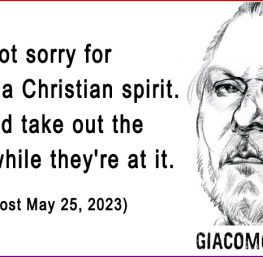The Freedom Post | Nov. 25, 2009
With the United States under direct assault from the evils of Socialism (or other forms of “Collectivism” including: Communism, or Fascism…pick your tyranny), and with Thanksgiving Day upon us, it’s timely, appropriate, and necessary to visit the nation’s very first attempt with Socialism, nearly four centuries ago.
Modern day promotion of these evils are communicated and shielded using code phrases such as “The Common Good”, Equality, Fairness, Justice, Community (as in the nonexistent “World Community”), and “spreading the wealth around”. All promises of achieving these unachievable ideals come at the cost of personal freedom and individual rights.
Americans, especially politicians, educators, and the media, ignore the ultimate failure of such forms of tyranny, and there’s no better example of this than our nation’s first experiment with Socialism.
The history you’re about to read has been largely ignored, probably purposely, by the vast majority of our “government-run” educational institutions, that have the bias toward furthering their vision of a society of, by, and for the government.
In 1620, a group of English Puritans left Great Britain and sailed across the Atlantic on the Mayflower. Not only were they breaking away from what they considered religious persecution, but they were leaving the Old World that had been, in their viewpoint, materialistic, selfish, greedy and unprincipled.
Their vision of the New World, was to build a society constructed on a new foundation of communal sharing and social altruism. Their aim was based on the Communism of Plato’s Republic, in which there would be no private property and all work, and the harvest thereof, would be shared in common.
The outcome of this experiment with “Commune-ism” is documented in the diary of William Bradford, the Governor and head of the colony. The results of this first “collective” were disastrous and led to famine and starvation, both physically and spiritually:
“For the young men that were able and fit for labor and service did repine that they should spend their time and strength to work for other men’s wives and children, without recompense. The strong, or men of parts, had no more division of food, clothes, etc. then he that was weak and not able to do a quarter the other could; this was thought injustice. The aged and graver men to be ranked and equalized in labor, and food, clothes, etc. with the meaner and younger sort, thought it some indignant and disrespect unto them. And for men’s wives to be commanded to do service for other men, as dressing their meat, washing their clothes, etc. they deemed it a kind of slavery, neither could husbands brook it.”
“The experience that was had in this common course and condition, tried sundry years, and that amongst the Godly and sober men, may well convince of the vanity and conceit of Plato’s and other ancients; — that the taking away of property, and bringing into a common wealth, would make them happy and flourishing; as if they were wiser than God. For this community (so far as it was) was found to breed confusion and discontent, and retard much employment that would have been to their benefit and comfort.”
Having had enough of this failed system, and to avoid further devastation, another system was tried, free enterprise, or “Capitalism”. Instead of working for the “common good”, each citizen was responsible for their own survival, had private property, and enjoyed the fruit of their individual labor: The product of this experiment was also written in Bradford’s diaries:
“And so assigned to every family a parcel of land, according to the proportion of their number for that end . . . This had a very good success; for it made all hands very industrious, so as much more corn was planted then otherwise would have been by any means the Governor or any other could use, and saved him a great deal of trouble, and gave far better content. The women now went willingly into the field, and took their little-ones with them to set corn, which before would a ledge weakness, and inability; whom to have compelled would have been thought great tyranny and oppression.”
“By this time harvest was come, and instead of famine, now God gave them plenty, and the face of things was changed, to the rejoicing of the hearts of many, for which they blessed God. And the effect of their planting was well seen, for all had, one way or other, pretty well to bring the year about, and some of the abler sort and more industrious had to spare, and sell to others, so as any general want or famine hath not been amongst them since to this day.”
The twisted ideology progressives would have you believe is that Socialistic systems are compassionate. Nothing could be further from the truth. The very ideals that Socialists profess are ironically only obtained through Capitalism and free enterprise, as the pilgrims learned. The prosperity was so bountiful that they gladly, voluntarily, shared excess.
The hard lesson that they learned, even though others have not, was that “Commune-ism,” Socialism, and other forms of collectivism, “altruism,” and Utopia are antithetical with the human nature and spirit. It results in shortages, poverty, resentment, and slavery. How long will we ignore human nature and history, ignorantly and naively repeating the same mistakes of the past?
Barack Obama’s desire to “spread the wealth” (yours, not his) and for government to plan, regulate and oversee every area of our lives, is not “hope” or “change”. It is as ancient as the illusory delusion in Plato’s Republic. Suckers who voted for, and still support this dangerous, America-hating Marxist, are putting the country in danger of being plagued by the same outcomes that the Pilgrims were inflicted with.
The Pilgrims learned that when freedom thrives, so does hard work, productivity, innovation, and prosperity. Communism, along with its twin tyrannical sisters of Socialism and Fascism, leads to precisely the opposite.
We have the moral duty to fight sleazy, self-serving, misguided, power-hungry, and corrupt politicians that are hell-bent on erasing our freedom in exchange for the promise of a fairy-tale that only exists in the heads of the damnable parasites who seek to rule us.
This Thanksgiving, let us remember the first and thank God for the freedoms we have, the lessons we’ve learned, the heritage we’ve been given, and the battle we’re in with those who seek to take them away.
. . . more




The description of the pilgrim’s reactions, which caused the failure,
merely shows they were greedy, prideful and full of sins of the
flesh. They could not share like Christians because they were
too entrenched in personal ambition and political separatism that
brought them there in the first place.
It was not a failed experiment in socialism. It was a failure to act
like the first Christians in Jerusalem. And the reason that those
early Christians were later on the recipients of charity from the
other churches via St. Paul, was not because “socialism” doesn’t
work, but because of a natural (or divine judgement on others)
situation that put everyone in trouble, in the midst of which
Christian love preserved fellow Christians and those affected or
helped by them.
Capitalism in the absolute unregulated sense is usually combined
with fantasies of imperialism by a entrepreneurial conqueror,
and further was almost unknown in ancient times. There was
always some government involvement, some rules as to how to
do things.
The pilgrims just weren’t all that Christian. By the way, socialism
is not sharing. It is the ownership and control of the means of
production by the working class – in practice administered by
power hungry sorts who claim to represent them. Nonetheless,
the initial transition from planned to unplanned economy in
Russia was disastrous, with meat and other food no longer
directed properly being over present some places and absent
elsewhere (sometimes due to dumping), and the only reason
people didn’t freeze outdoors, is because no one owned their
homes to kick them out! Non payment of taxes or mortgages
wasn’t an issue.
I don’t favor Marxism by any means. But Marx’s atheism was
an anomaly in the history of “socialist” experimental thinkers,
and he seems to have been motivated entirely by personal
ambition.
Sorry Justina, but your definition of “capitalism” is wrong. You mixed all sorts of concepts in there are incorrectly said that it was “almost unknown in ancient times.” That is absolutely wrong.
Here is a brief description of what capitalism (free market economics) is and how it operates:
from: http://chrisbanescu.com/blog/2009/01/22/a-primer-on-capitalism/